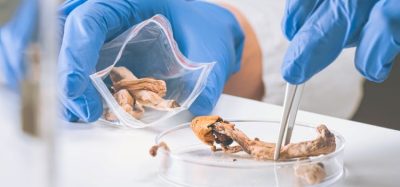Five-year data from Phase II trial of Adcetris published
Posted: 19 July 2016 | | No comments yet
The data comes from a Phase II trial of Adcetris (brentuximab vedotin) in patients with relapsed or refractory classical Hodgkin lymphoma…


Data from a Phase II trial of Adcetris (brentuximab vedotin) treatment in patients with relapsed or refractory classical Hodgkin lymphoma have been published.


Adcetris is an antibody-drug conjugate (ADC) directed to CD30, a key driver of classical Hodgkin lymphoma tumour pathogenesis.
The pivotal, single-arm trial, which supported the FDA approval in 2011 of Adcetris for this indication, was conducted in 102 relapsed or refractory classical Hodgkin lymphoma patients who had previously received an autologous stem cell transplant (ASCT) to assess the efficacy and safety of single-agent Adcetris. Enrolled patients had received a median of more than three prior chemotherapy regimens.
After a five-year follow-up period, the median overall survival and progression-free survival were 40.5 months and 9.3 months, respectively. The estimated five-year overall survival and progression-free survival rates were 41 percent and 22 percent.
Complete remission in 34 patients
Of the 102 patients treated, 34 patients (33%) had a complete remission, with the median response duration not reached. For patients who had a complete remission, the estimated five-year overall survival rate was 64% and the estimated five-year progression-free survival rate was 52%.
Thirteen of the 34 patients who achieved a complete remission continued to be followed and remained in remission for over five years at study closure. Of these patients, four underwent consolidative allogeneic stem cell transplants while in remission, and nine received no further therapy.
Commenting on the results, Robert Chen, M.D., City of Hope National Medical Center, Duarte, California, said: “At the time of trial initiation, historical outcomes for Hodgkin lymphoma patients who relapsed after an autologous stem cell transplant were poor, with median post-progression survival of 1.3 years, and the only long-term disease control option for these patients was considered to be an allogeneic stem cell transplant. The median survival of the patients on Adcetris monotherapy in this pivotal Phase II trial exceeds these historic figures, and I am pleased to see the publication of the final data.”
Seattle Genetics and Takeda are jointly developing Adcetris.









